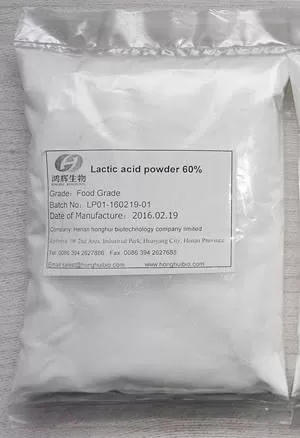
Lactic acid food grade
KSh0.01 Original price was: KSh0.01.KSh0.00Current price is: KSh0.00.
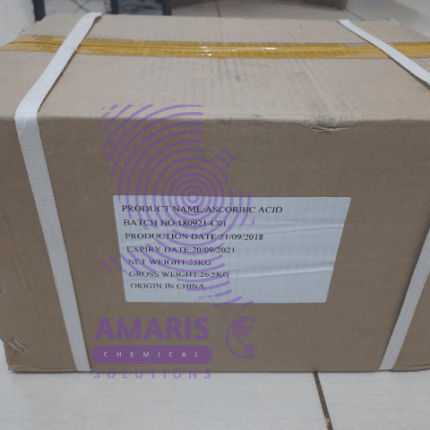
Ascorbic acid 25kg
KSh23,500.00 Original price was: KSh23,500.00.KSh22,500.00Current price is: KSh22,500.00.
Tartaric acid Food Grade
KSh0.01 Original price was: KSh0.01.KSh0.00Current price is: KSh0.00.
Category: Acidulants
Reviews (0)
Be the first to review “Tartaric acid Food Grade” Cancel reply
Shipping & Delivery
Related products
Fumaric Acid
KSh0.01
Fumaric acid is a naturally occurring organic compound with the chemical formula C₄H₄O₄. It is a dicarboxylic acid that plays a role in the citric acid cycle (Krebs cycle) in cellular metabolism. Fumaric acid is a white crystalline substance with a slightly acidic taste.
Uses:
- Food and Beverage Industry: It’s used as a food additive (E297) to enhance flavor and preserve food, especially in the production of beverages, fruit juices, and candies.
- Pharmaceuticals: It is used in the treatment of certain skin conditions like psoriasis, and as a precursor in the synthesis of certain drugs.
- Industrial Applications: Fumaric acid is used in the production of resins, plastics, and as a cross-linking agent in the manufacturing of unsaturated polyester resins.
- Cosmetics: It is sometimes included in skincare products for its mild exfoliating and skin-conditioning properties.
Lactic acid food grade
Lactic acid is a chemical compound classified as an organic acid. It is a type of carboxylic acid, specifically known as 2-hydroxypropanoic acid. Lactic acid is produced in the body as a byproduct of anaerobic metabolism, primarily in muscle tissues, during periods of intense physical activity or when oxygen supply is limited. It plays a crucial role in energy production and can serve as an alternative energy source when glucose availability is reduced.
In terms of its chemical structure, lactic acid consists of a three-carbon molecule with a hydroxyl group (-OH) and a carboxyl group (-COOH) attached to the second carbon. It exists in two stereoisomeric forms: L-lactic acid and D-lactic acid. L-lactic acid is the most common and biologically active form found in humans.
Lactic acid has several industrial applications, including its use in food production, pharmaceuticals, and cosmetics. It is often utilized as a preservative, flavoring agent, pH regulator, and moisturizer. Lactic acid is also employed in various chemical processes, such as the production of biodegradable plastics and environmentally friendly solvents.
Overall, lactic acid is an important compound with diverse biological and industrial significance, contributing to various physiological processes and serving as a versatile chemical building block in numerous applications.
Phosphoric acid Technical Grade 30kg
Phosphoric acid is a clear, colorless, and odorless mineral acid with the chemical formula H3PO4. It is a triprotic acid, which means that it can donate three protons (hydrogen ions) per molecule when dissolved in water. Phosphoric acid is commonly used in the production of fertilizers, detergents, and food additives, as well as in various industrial applications, such as rust removal and metal surface treatment. It is also used in the production of soft drinks, where it gives a tart flavor and acts as a preservative.
Sodium bicarbonate (Baking Soda)
Sodium bicarbonate, also known as baking soda, is a chemical compound with the formula NaHCO3. It is a white crystalline powder that is commonly used in baking, as a leavening agent to help dough rise. It is also used as an antacid to neutralize stomach acid and as a cleaning agent for its abrasive and deodorizing properties. In addition, sodium bicarbonate is used in various medical applications, such as in the treatment of metabolic acidosis and as a component of dialysis solutions.
Sodium Carbonate Anhydrous 500gm
Acidulants, Analytical Reagents, Builders, Finishing Agents, PH Adjusters, Soil Conditioners, Solvents
Sodium carbonate soda ash light is a refined form of sodium carbonate, which is a white, crystalline compound with the chemical formula Na2CO3. It is called "light" because it has a lower density compared to other forms of sodium carbonate.
Soda ash light is primarily used in industrial and commercial applications, including glass manufacturing, water treatment, detergent production, and as a pH regulator in various chemical processes. It is known for its alkaline properties and its ability to effectively neutralize acidic substances.
Sodium citrate 25kg
Sodium citrate is a chemical compound that can be described as the sodium salt of citric acid. It is commonly used as a food additive, primarily as a flavoring agent, preservative, and pH regulator. It is also utilized in various pharmaceutical and medical applications. Sodium citrate acts as a buffering agent and emulsifier, helping to stabilize and enhance the texture of certain food products. In medicine, it is used to treat conditions such as acidosis and as an anticoagulant during blood transfusions. Overall, sodium citrate plays a versatile role in different industries due to its ability to modify acidity, improve stability, and contribute to various desirable properties in different products.
Succinic Acid 500gm
Succinic acid, also known as butanedioic acid, is a dicarboxylic acid with the molecular formula C4H6O4. It is a white, odorless solid that is soluble in water. Succinic acid occurs naturally in some fruits and vegetables and is also produced synthetically for various industrial applications. It is used as a precursor in the synthesis of various chemicals, pharmaceuticals, and polymers. In laboratories, it serves as a reagent in chemical reactions and as a component in buffer solutions due to its ability to adjust pH.
Tartaric Acid 500gm
Tartaric acid is a naturally occurring organic acid found in many plants, particularly in grapes, bananas, and tamarinds. It is well-known for its significant role in the wine industry, where it helps stabilize the wine and contributes to its taste. Here are some key aspects and uses of tartaric acid:
Chemical Properties
- Chemical Formula: C4_44H6_66O6_66
- Molecular Weight: 150.09 g/mol
- Appearance: White crystalline powder
- Solubility: Soluble in water and alcohol
Natural Occurrence
Tartaric acid is widely found in nature, predominantly in fruits like grapes, apricots, and apples. The potassium salt of tartaric acid, known as potassium bitartrate or cream of tartar, is a byproduct of winemaking.Industrial Production
Commercially, tartaric acid is often produced as a byproduct of wine production. The process involves:- Extraction: The sediment left in wine barrels, known as "lees," is treated to extract potassium bitartrate.
- Purification: The crude potassium bitartrate is then purified and converted to tartaric acid.

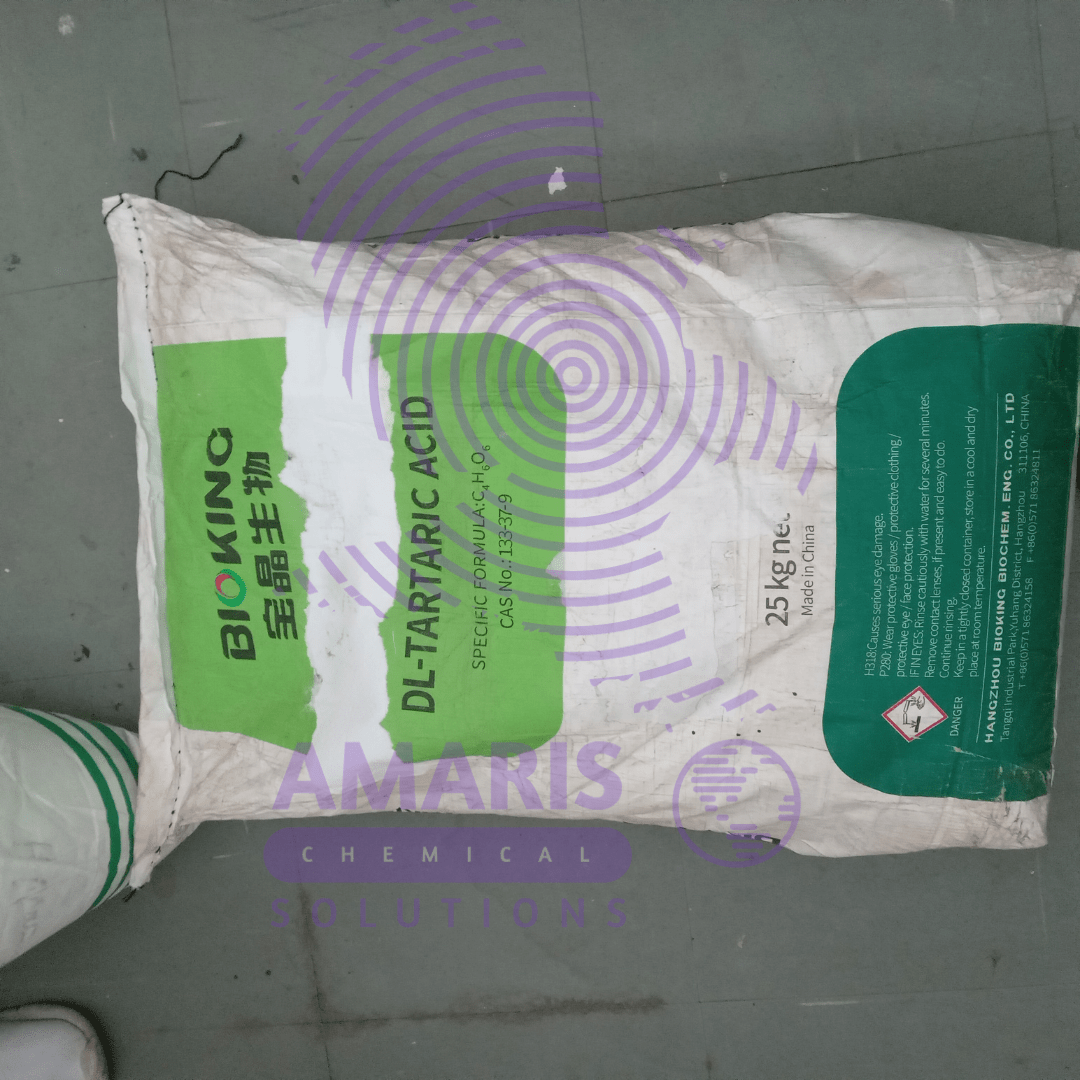
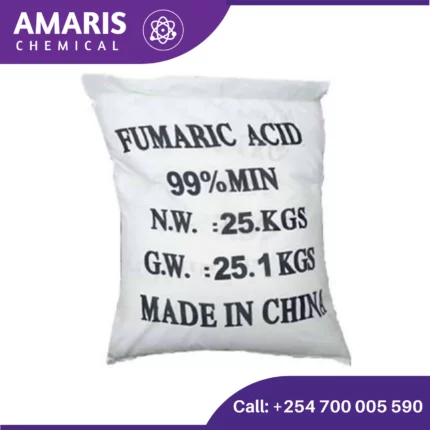

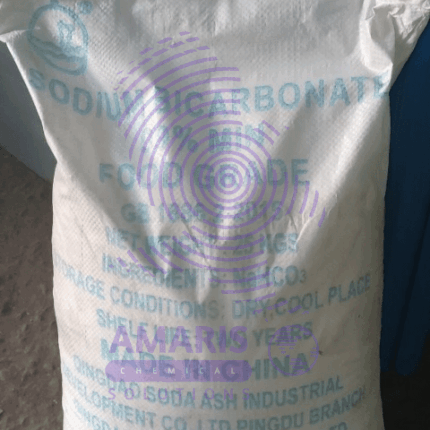
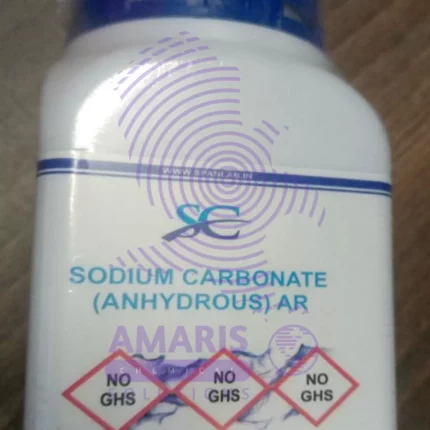
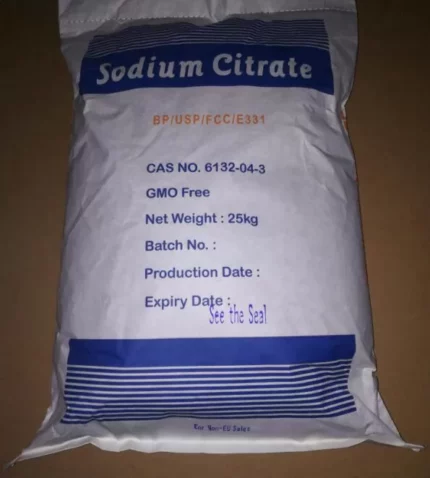
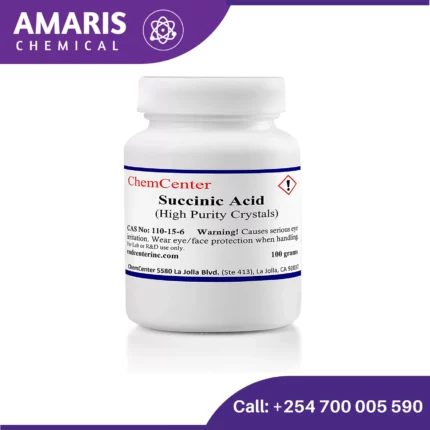
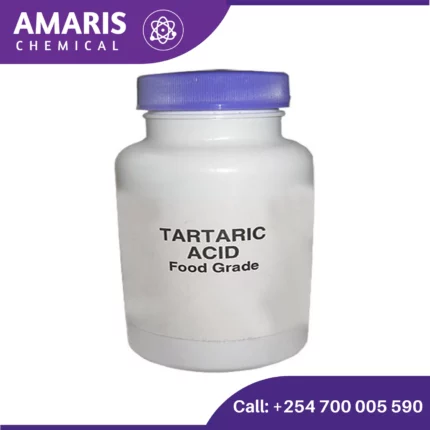
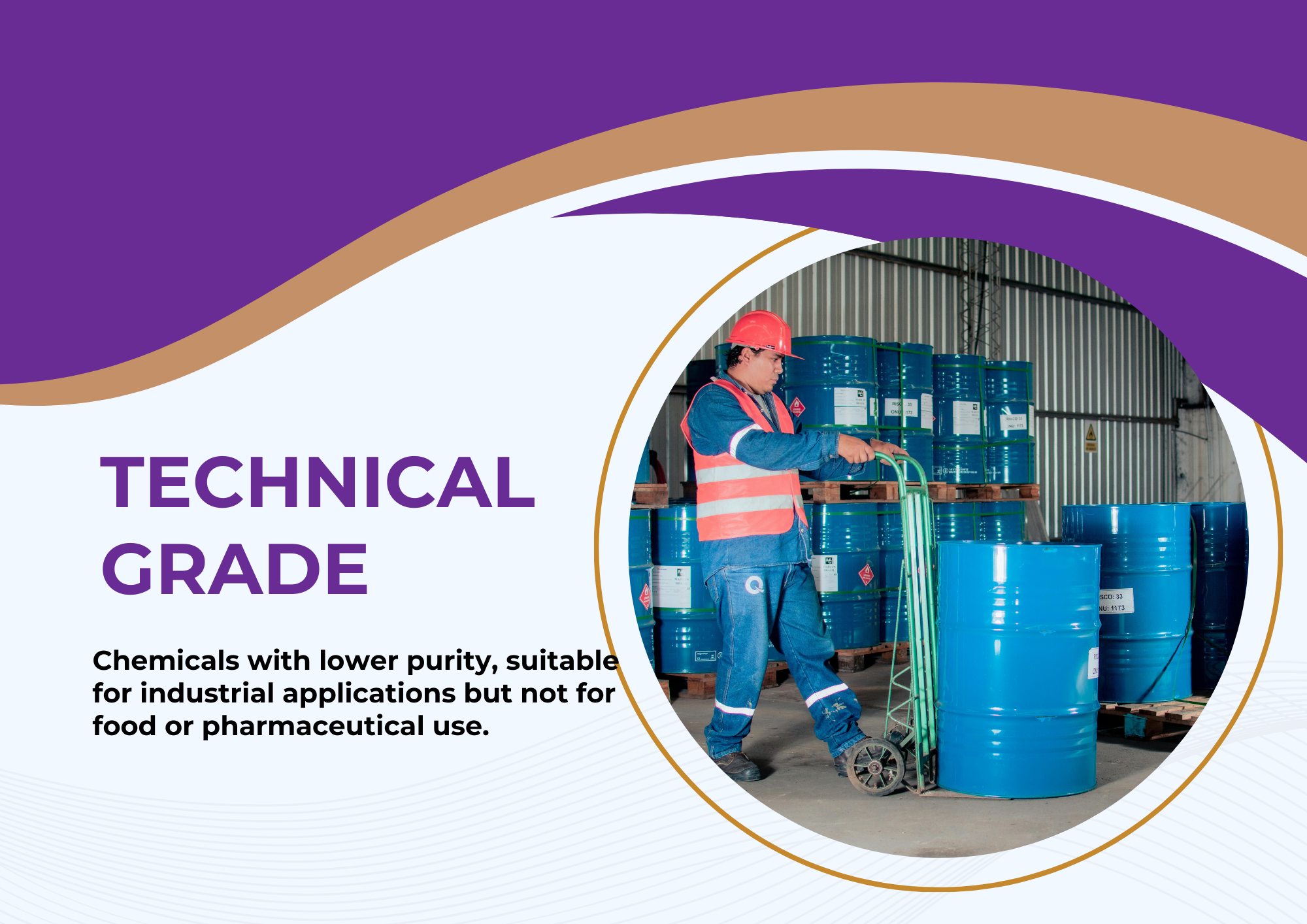



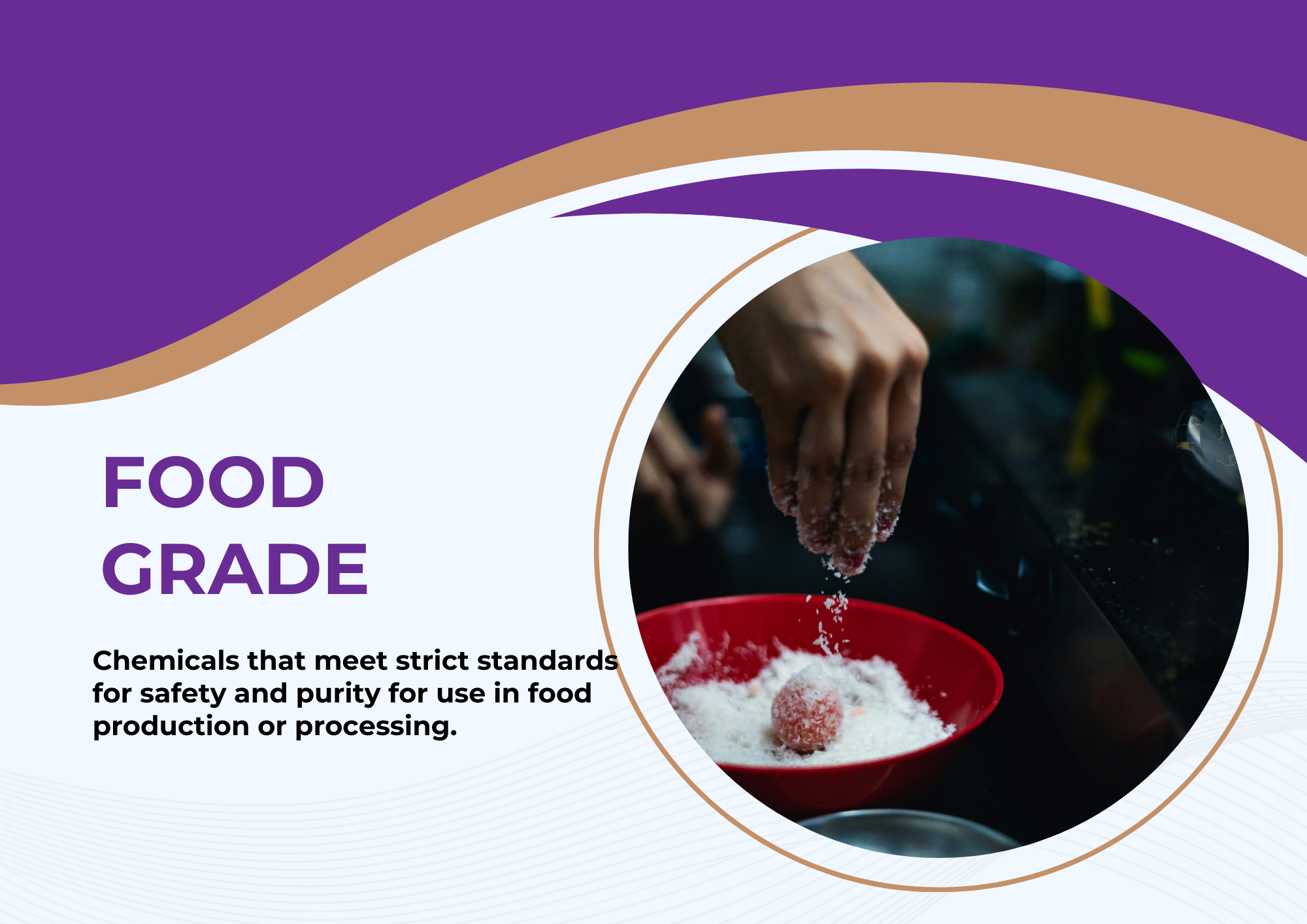

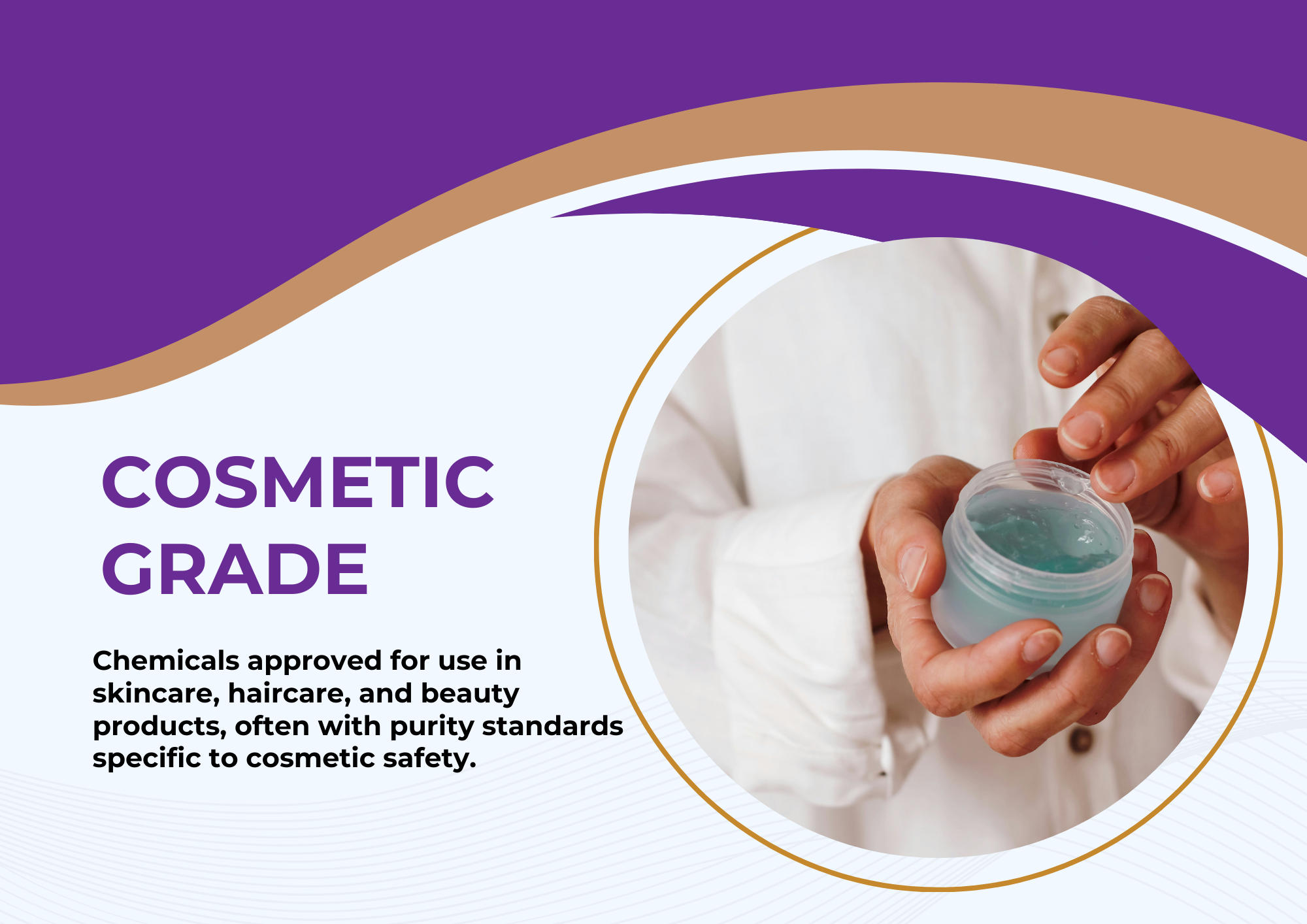
Reviews
There are no reviews yet.